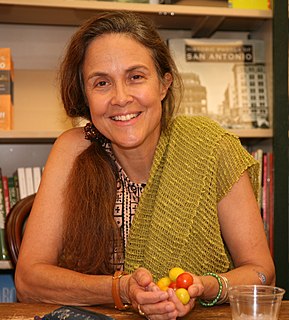A Quote by Joel Coen
The characters are the result of two things-first, we elaborate them into fairly well-defined people through their dialogue, then they happen all over again, when the actor interprets them.
Related Quotes
One can feel the immense joy of Amy Hill Hearth's engagement in her first novel. It radiates through every scene and through every page. Sometimes, an exceptional writer finds an exceptional premise, and the result is a truly exceptional book. Such is the case with Miss Dreamsville...The writing is brilliant, especially the dialogue through which the characters are defined.
If you have the personalities down, you understand them and identify with them; you can stick them in any situation and have a pretty good idea of how they're going to respond. Then it's just a matter of sanding and polishing up the jokes. But if you've got more ambiguous characters or stock stereotypes, the plastic comes through and they don't work as well. These two characters clicked for me almost immediately and I feel very comfortable working with them.
When I first started writing plays I couldn't write good dialogue because I didn't respect how black people talked. I thought that in order to make art out of their dialogue I had to change it, make it into something different. Once I learned to value and respect my characters, I could really hear them. I let them start talking.
Many writers struggle with exposition in their novels. Often they heap it on in large chunks of straight narrative. Back story – what happens before the novel opens – is especially troublesome. How can we give the essentials and avoid a mere information drop?
Use dialogue. First, create a tension-filled scene, usually between two characters. Get them arguing, confronting each other. Then you can have the information appear in the natural course of things.
If you invent two or three people and turn them loose in your manuscript, something is bound to happen to them -- you can't help it; and then it will take you the rest of the book to get them out of the natural consequences of that occurrence, and so first thing you know, there's your book all finished up and never cost you an idea.
Today you will say things you can predict and other things you could never imagine this minute. Don't reject them, let them come through when they're ready, don't think you can plan it al out. This day will never, no matter how long you live, happen again. It is exquisitely singular. It will never again be exactly repeated.
Value investing strategies have worked for years and everyone's known about them. They continue to work because it's hard for people to do, for two main reasons. First, the companies that show up on the screens can be scary and not doing so well, so people find them difficult to buy. Second, there can be one-, two- or three-year periods when a strategy like this doesn't work. Most people aren't capable of sticking it out through that.
Some actors might just do one thing, and another actor does another thing. I do an awful lot of preparation with the script, really. What I do is repeat the script, over and over and over again. Through that, it's almost like it seeps into my enamel. I'm reading all the characters, as well as my own. That is where the bulk of my preparation goes into.
Disassemble the cells of a sponge (by passing them through a sieve, for instance), then dump them into a solution, and they will find their way back together and build themselves into a sponge again. You can do this to them over and over, and they will doggedly reassemble because, like you and me and every other living thing, they have one overwhelming impulse: to continue to be.
It's funny what [producer Richard Zanuck said about even though you can't quite place when the book or the story came into your life, and I do vaguely remember roughly five years old reading versions of Alice in Wonderland, but the thing is the characters. You always know the characters. Everyone knows the characters and they're very well-defined characters, which I always thought was fascinating. Most people who haven't read the book definitely know the characters and reference them.
Meditation gives you two things: equanimity and creativity. And it does that by taking one from their conscious mind, where there's all that noise and chaos and so on, into the subconscious mind where there's quiet and where creativity emanates from. You have a mantra, and when you repeat it over and over again, all those thoughts go away because you shift them to that mantra. And then eventually that sound disappears, and then you're left not conscious or unconscious - you're left in this subconscious state, and by opening that up, first of all you get control of it.
Words are alive--when I've found a story that I love, I read it again and again, like playing a favorite song over and over. Reading isn't passive--I enter the story with the characters, breathe their air, feel their frustrations, scream at them to stop when they're about to do something stupid, cry with them, laugh with them. Reading for me, is spending time with a friend. A book is a friend. You can never have too many.






































